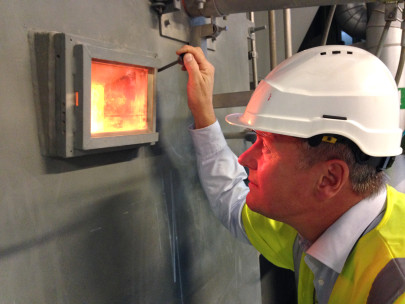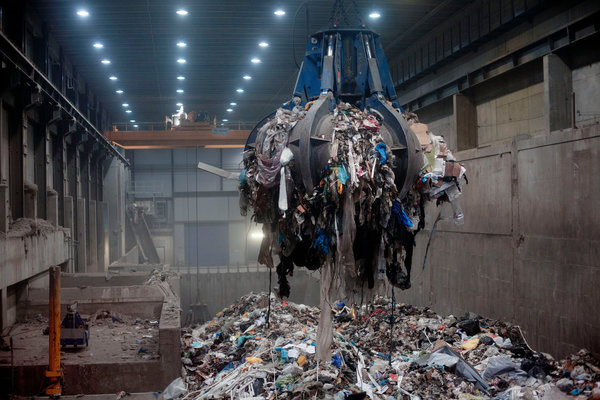Sweden now recycles 99 percent of its household garbage. Sweden reuses a large share of its waste–and that of other nations–but it also recycles a lot by burning it for energy. Sweden burns millions of tons of garbage per year in energy-generating plants–a process that has not been without controversy.
The average Swede currently produces 461 kilograms of waste per year.
Sweden also imports garbage. Roughly 800,000 tons of garbage are imported from the UK, Italy, Norway and Ireland yearly. Sweden uses the waste to create energy in waste-to-energy (WTE) plants.
“ Waste today is a commodity in a different way than it has been. It’s not only waste, it’s a business,” stated Swedish Waste Management communications director Anna-Carin Gripwell.
Waste today is a commodity in a different way than it has been. It’s not only waste, it’s a business,” stated Swedish Waste Management communications director Anna-Carin Gripwell.
Much of the waste is incinerated. Sweden burns around two million tons of waste each year.
The incinerators generate steam that spins generator turbines, resulting in electricity production. The electricity is transmitted to the national grid.
Sweden’s WTE’s produce much of their home heating and electricity needs. Nationwide, WTEs produce heating for 950,000 of the northern country’s 4.5 million homes and electricity for 260,000 homes.
Sweden produces around 670,000 tons worth of fuel energy per year by burning waste. Göran Skoglund, spokesperson for Öresundskraft, one of the country’s largest energy companies, pointed out, “A good number to remember is that three tons of waste contains as much energy as one ton of fuel oil… so there is a lot of energy in waste.”
WTEs have been criticized for sending pollution and toxins into the air, but the low-emission process is not the same as the open air burning of garbage many people are familiar with. And the alternatives to burning are also not without environmental concerns.
Gripwell put the treatment policy in environmental terms. “When waste sits in landfills, leaking methane gas and other greenhouse gasses, it is obviously not good for the environment.” Landfills are at the bottom of Sweden’s list.
However, Sweden also reuses much of its garbage before sending the remnant to incinerators–around 50 percent. Home and business owners filter trash before it makes its way to WTEs.
Sweden’s garbage policy has come about through law, in addition to environmental consciousness.
Swedish law regulates responsibility for waste. Producers of waste bear the burden of all handling costs related to the collection, recycling and disposal of their products.
In 1975, the nation recycled 38 percent of its household garbage. But during the 70s, the nation adopted strict rules and regulations for waste handline, which led to what Swedes now refer to as a “waste hierarchy.”
“People rarely question the ‘work’ they have to do,” said Gripwell.
By Sid Douglas
Importing garbage for energy is good business for Sweden from Sweden on Vimeo.
